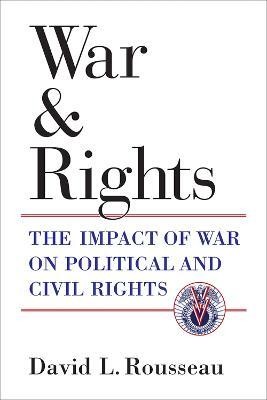War and Rights(English, Hardcover, Rousseau David L)
Quick Overview
Product Price Comparison
Warfare in Europe contributed to the development of the modern state. In response to external conflict, state leaders raised armies and defended borders. The centralization of power, the development of bureaucracies, and the integration of economies all maximized revenue to support war. But how does a persistent external threat affect the development of a strong state? The "Garrison State" hypothesis argues that states that face a severe security threat will become autocracies. Conversely, the "Extraction School," argues that warfare indirectly promotes the development of democratic institutions. ? Execution of large-scale war requires the mobilization of resources and usually reluctant populations. In most cases, leaders must extend economic or political rights in exchange for resolving the crisis. Large-scale warfare thus expands political participation in the long run. The authors use empirical statistical modeling to show that war decreases rights in the short term, but the longer and bigger a war gets, the rights of the citizenry expand with the conflict. The authors test this argument through historical case studies-Imperial Russia, Austro-Hungarian Dual Monarchy, African Americans in World War I and II, and the Tirailleurs Senegalese in World War I-through the use of large-N statistical studies-Europe 1900-50 and Global 1893-2011-and survey data. The results identify when, where, and how war can lead to the expansion of political rights.


